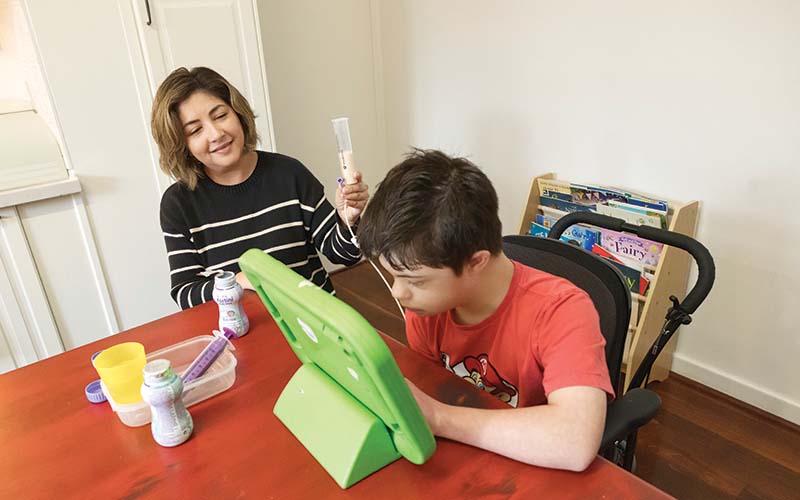Search
Research
Severe Congenital Heart Defects and Cerebral PalsyTo report the prevalence of cerebral palsy (CP) in children with severe congenital heart defects (sCHD) and the outcome/severity of the CP.
Research
Down syndrome and leukemia: from basic mechanisms to clinical advancesChildren with Down syndrome (DS, trisomy 21) are at a significantly higher risk of developing acute leukemia compared to the overall population. Many studies investigating the link between trisomy 21 and leukemia initiation and progression have been conducted over the last two decades.
Research
Kindy Moves: the feasibility of an intensive interdisciplinary programme on goal and motor outcomes for preschool-aged children with neurodisabilities requiring daily equipment and physical assistanceTo determine the feasibility of an intensive interdisciplinary programme in improving goal and motor outcomes for preschool-aged children with non-progressive neurodisabilities. The primary hypothesis was that the intervention would be feasible.

For thousands of children around Australia with intellectual and other disabilities, the process of eating can be traumatic, posing challenges that veer from uncomfortable to life threatening.
Research
Fine-grained Fidgety Movement Classification using Active LearningTypically developing infants, between the corrected age of 9-20 weeks, produce fidgety movements. These movements can be identified with the General Movement Assessment, but their identification requires trained professionals to conduct the assessment from video recordings.
Research
Access to Oral Healthcare in Individuals With Rett Syndrome: A Qualitative Study of Parent PerspectivesIntellectual and developmental disabilities (IDD) are varied in their nature and presentation. Barriers to oral healthcare are reported in studies of general populations with IDD but these may not reflect the barriers experienced by individuals with rare disorders such as Rett syndrome.
Research
Co-design of the neurodevelopment assessment scaleNeurodevelopmental disorders (NDDs) have high comorbidity rates and shared etiology. Nevertheless, NDD assessment is diagnosis-driven and focuses on symptom profiles of individual disorders, which hinders diagnosis and treatment. There is also no evidence-based, standardized transdiagnostic approach currently available to provide a full clinical picture of individuals with NDDs. The pressing need for transdiagnostic assessment led to the development of the Neurodevelopment Assessment Scale.
Research
Comparing home polysomnography with transcutaneous CO2 monitoring to laboratory polysomnography in children with neuromuscular disordersClinical utility of home polysomnography in children with neuromuscular disorders is limited by lack of evidence that sleep-disordered breathing can be reliably identified and inability to diagnose hypoventilation because carbon dioxide is not measured.
Research
Behavior Change Techniques Involved in Physical Activity Interventions for Children with Chronic Conditions: A Systematic ReviewBehavior change techniques (BCTs) have been extensively used in physical activity interventions for children, however, no systematic reviews have synthesized their effects.
Research
Parent-reported outcome measures evaluating communication in individuals with rare neurodevelopmental disorders: A systematic reviewCommunication impairments are a leading concern for parent caregivers of individuals with rare neurodevelopmental disorders. Clinical trials of disease modifying therapies require valid and responsive outcome measures that are relevant to individuals with RNDDs. Identifying and evaluating current psychometric properties for communication measures is a critical step towards the selection and use of appropriate instruments.
